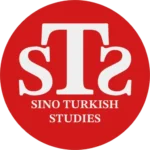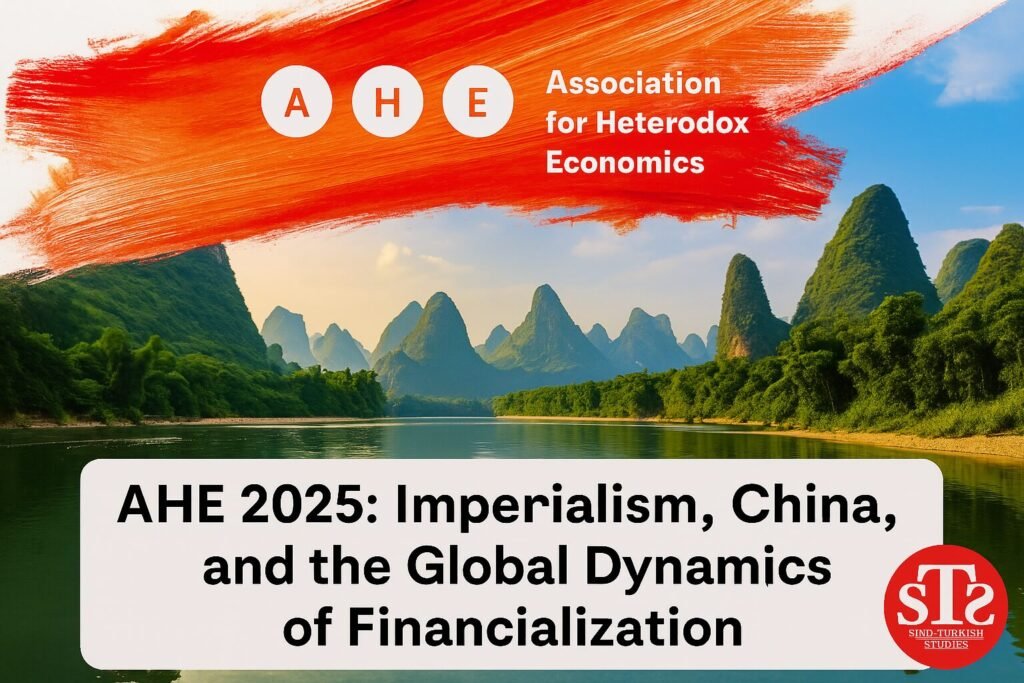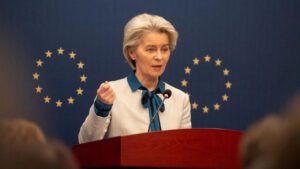Published By: Michael Roberts
AHE 2025 Conference: A Global Forum for Heterodox Economics
The 2025 annual conference of the Association for Heterodox Economics (AHE) was held in London, bringing together economists from various schools of thought to present papers and engage in open discussions.
Founded in 1999, AHE provides a platform for non-mainstream economic theories, including Post-Keynesian, Marxian, Sraffian, institutional, feminist, and Austrian perspectives. But, as Michael Roberts notes, heterodox does not necessarily mean socialist or anti-capitalist.
Mainstream, Heterodox, and Marxist: Three Lines of Thought
Roberts identifies three distinct economic schools: mainstream, heterodox, and Marxist. In a previous Rethinking Economics conference, he emphasized that only Marxist theory centers labor value and surplus value as core concepts—elements typically rejected by Keynesians, Kaleckians, MMT advocates, and others.
Can the Global South Catch Up?
In his presentation, Roberts addressed a core empirical question:
Are poor Global South countries closing the gap in living standards with the wealthy Global North?
Using three indicators—GDP per capita, labor productivity, and human development index (HDI)—Roberts concluded that, with the exception of China, the Global South has not closed the gap.
From a Marxist standpoint, the explanation lies in:
- Continuous value transfers from South to North via profits, rents, and interest
- A decline in profitability in the South, slowing capital accumulation and productivity growth
Mainstream explanations—such as those by the World Bank and Daron Acemoglu—attribute the gap to lack of investment, weak institutions, and failure to adopt liberal democratic models.
Why China Is the Exception
Roberts identifies China as a systemic exception. Projections show China reaching high-income status (over $41,000 per capita) by 2041, far ahead of other BRICS nations.
The key factor: In China, investment growth is less constrained by profitability, unlike in other Global South economies, allowing sustained structural transformation.
Revisiting Imperialist Exploitation and Marxist Theory
The panel on imperialism included:
- John Smith, who reaffirmed Lenin’s five key features of imperialism, emphasizing that 21st-century capital export mirrors Lenin’s argument about falling domestic profitability
- Conrad Herold (Hofstra University), who provided a historical overview of Marxist dependency theory from Grossman and Emmanuel to Marini, and rejected structuralist claims that early industrialization explains underdevelopment
Herold argued that we still need a robust Marxist theory of imperialist exploitation grounded in contemporary data.
Surplus Extraction or Technological Superiority?
The debate centered around whether value transfers from the South stem primarily from:
- Higher surplus value rates (due to lower wages), or
- Northern firms’ technological dominance and capital intensity
Previous thinkers:
- Emmanuel focused on surplus value rates
- Bettelheim emphasized organic composition of capital
Roberts and Guglielmo Carchedi argue both mechanisms matter, and together explain the structural imbalance in global value flows.
New Data on Global Exploitation Rates
Tomas Rotta (Goldsmiths College) and Rishabh Kumar (UMass) presented updated data on global rates of exploitation.
Their findings confirm:
- Capital intensity is rising faster than surplus extraction → falling global profit rates
- Surplus value rates are higher in low-income countries
- Value produced in the South is extracted and transferred to the North through global trade and capital flows
Although China’s losses have declined since the Great Recession, the share of value captured per worker in the US remains disproportionately high compared to China and India.
China’s Geopolitical Rise and Global Reaction
Ho-fung Hung (Johns Hopkins University) presented insights from his book Clash of Empires.
Key arguments include:
- China’s state-backed corporations are becoming more aggressive globally
- US firms, once lobbying for China, are pulling back
- Excess industrial capacity exports are fueling geopolitical conflict
- Hung compares this to pre-WWI imperial rivalries among major powers
Hung suggests that the US-China clash is being driven by China’s assertive global expansion—a view that aligns with mainstream US academic narratives.
China Reshaping the Debate on Global Imperialism
The AHE 2025 conference underscored how China’s exceptional path—combined with ongoing value transfers from the South to the North—continues to challenge conventional economic paradigms.
While most Global South countries struggle to catch up, China’s model of state-led investment and structural autonomy may offer a glimpse of a post-imperialist development pathway.
In the age of financialized capitalism, the core question remains:
Who controls value—and who gets to keep it?
AHE 2025: Imperialism, China’s Rise, and Global Value Transfers in Focus
📄 Meta Description
The AHE 2025 conference explored imperialism, China’s economic exceptionality, and global value transfers through a Marxist lens. Can the Global South truly catch up?
🔑 Keywords
AHE 2025, China economic rise, Marxist economics, global value transfers, imperialism theory, heterodox economics, Global South development, John Smith imperialism, Tomas Rotta exploitation rates, Lenin economic theory, Michael Roberts blog, China US geopolitical rivalry, Ho-fung Hung Clash of Empires, surplus value Marx
Source: https://www.aydinlik.com.tr/koseyazisi/ahe-2025-emperyalizm-cin-ve-finansallasma-533645
Abroad Africa AI Beijing Belt & Road BLCU BRICS China chinese CPC CSC Culture Economy education EU Guizhou Kültür Langauge movie Multipolarity Russia scholarship science Shanghai Sino Sino Turkish Sino Turkish Sino Turkish Sino Turkish Sino Turkish Studies Sino Turkish Studies Sino Turkish Studies Sino Turkish Studies space Syria Taiwan Tariff trump Turkiye Türkiye University USA Xinjiang ZJUT Çin





